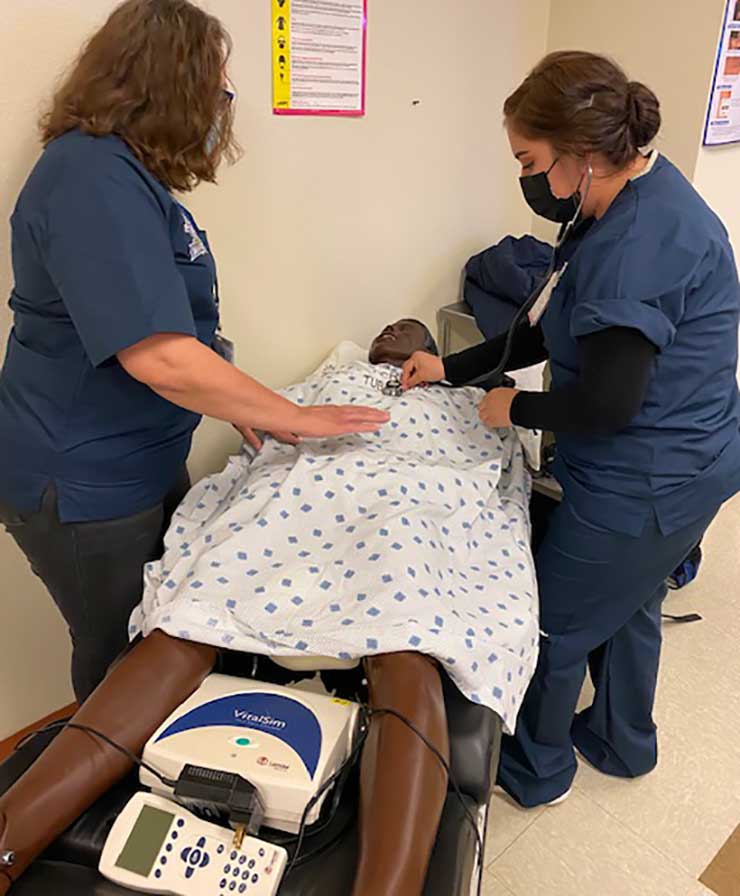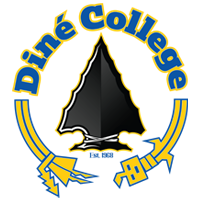
Diné College to Graduate First Cohort of Certifed Medical Assistants
FOR IMMEDIATE RELEASE
Feb. 15, 2021
TSAILE, Ariz. — The first cohort of a new medical assistant certificate program at Diné College is on pace to graduate this year – a major milestone during the coronavirus (Covid-19) pandemic, officials said.
The Certified Medical Assistant (CMA) certificate program — the first of its kind ever offered on the Navajo Nation — will graduate 10 students come Fall 2021.
“The college is now preparing to put into place the procedures for a second cohort,” Shazia Hakim, Ph.D., a Diné College microbiology professor who oversees the program, said. Hakim is part of the CMA student selection and accreditation committees. “Soon we will start taking formal applications followed by a scrutinizing of applicants for admission to the Fall 2021 program,” Hakim noted.
The CMA program is a 37-credit hour set of certificate course offerings only available at Diné College’s Tuba City Center. Classes take place Friday, Saturday and Sunday, followed by a 10-week field externship at the Tuba City Regional Healthcare Corporation.
Hakim said future plans call for CMA program offerings at most likely the Tsaile and Shiprock campuses of the college. Diné College operates six campuses in Arizona and New Mexico.
“There is a big need because we have students who applied or inquired from other areas such as Shiprock, Chinle and Piñon,” Hakim said. “This tells us there is interest and it’s a weekend program, so students can still work 40 hours a week during the week.” The CMA program is catered toward working parents, Phyllis Begay, Tuba City Center Director, added.
The program tackles multiple tasking with respect to working in a hospital environment. Students are trained in medical office practice and administration, health care record management and bookkeeping, first aid and CPR, vital signs, basic anatomy and physiology, medical terminology and transcription, point of care testing, drug dispensing and wound dressing, infection control, clinical laboratory testing and patient management.
Hakim said the program is popular and applications continue to roll in, adding that there is a process that consists of being fully admitted into Diné College, a 500 word essay, a questionnaire, and candidates to the CMA program must take a basic math entry test. A committee reviews the applicants and does the selections.
Hakim, who developed the curriculum for the program, said the major duties of a CMA are with the hospital environment, medical offices and assisted living facilities that demand face-to-face contact.
“Upon graduation, students will be awarded the CMA certificate and we will try to make sure that our graduates participate in exams offered by external bodies like the American Association of Medical Assistants (AAMA), to increase their credibility in the market,” Hakim said.
One of the hallmarks of the online program is the commitment to building a robust student experience that centers around community. Hakim said CMA program graduates have a variety of job options available in hospitals, medical offices, laboratories, research and teaching institutes — or students can further their studies in medical assisting at the associate’s or bachelor’s level at a college or university.
Hakim holds a doctoral degree from the University of Karachi in Pakistan, with multiple certifications in clinical laboratory sciences from Canada and the U.S. Hakim said Tuba City is the largest community by zip code on the Navajo Nation, and the CMA program is in demand around the Navajo Nation due to the lack of certified medical assistants at healthcare facilities.
Phyllis Begay, director at the Tuba City Center, added that there is a lot of potential career growth for a CMA. Currently, the Navajo Nation is experiencing staff shortages in hospitals due to the Covid-19 pandemic, so hospitals are struggling at maintaining their staff, she said.
Added Begay: “If colleges and universities like Diné College can help with training in allied health care fields, we might do better when another health crises hits. Moreover, it can be a win-win situation, because salaries are higher with just a certification and career opportunities are available.”
